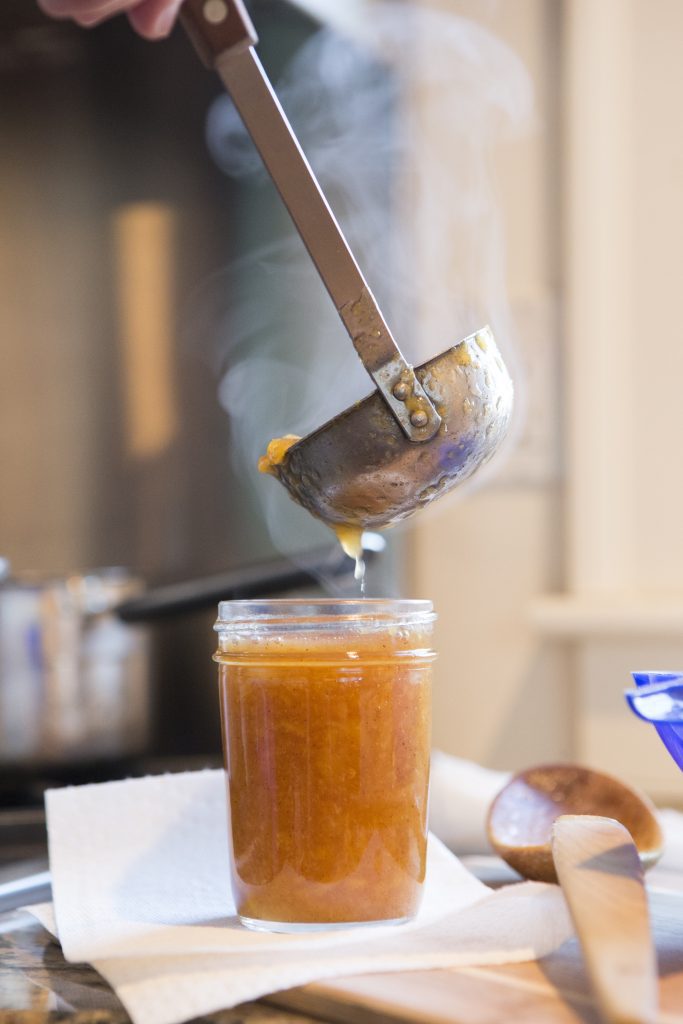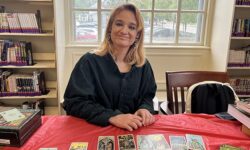By Madison Butkus
Hometown Weekly Reporter
Sponsored by the Cary Library Foundation and in partnership with the Lexington Community Farm (LexFarm), the Needham Free Public Library (NFPL) shared an online home canning event. This event, which was led by Chef Afton Cyrus of Jam Sessions, was in honor of Massachusetts Eat Local Month.
Over 100 attendees logged in for this virtual demonstration/presentation which consisted of anywhere from beginner to novice canners. Chef Cryus, who has been a home canner for over twenty years and owner of Jam Sessions since 2014, led everyone through a presentation about food safety, canning do’s and don’ts, and recommended equipment and resources.
Cyrus began her talk by explaining why it is a great idea to preserve food. “Preserving slows down the clock,” she stated, “on how quickly fresh food expires. It keeps it safe to eat for longer, and transforms simple ingredients into new foods to enjoy.” She also briefly explained all the different methods of persevering food including salting, drying, fermentation, pasteurization, refrigeration, freezing and of course, canning.
From there, Cyrus depicted the two different at-home canning methods: Boiling Water Bath Canning (BWBC) and Pressure Canning. BWBC is safe for high acid foods with a pH below 4.6 and can include jams, jellies, vinegar-brined pickles and/or acidified tomato products. The Pressure Canning method is only safe for low acid foods with a pH above 4.6 which could include vegetables in water, soups, meats and/or poultry.
For those who are beginners, she suggests that BWBC is the better and easier option in which she showed a demonstration of this within the event. Before starting this demonstration, she detailed the BWBC equipment that was needed in order to successfully can at home. These items included a Water Bath Container (a large pot), a Canning Rack (which keeps the jars from touching the bottom of the pot), a jar lifter (to pick up the hot jars), a canning funnel (to help put the mixture into the jars), mason jars (boil extra just in case), lids (that can only be used once), bands, a large nonreactive stockpot and a trusted recipe.
While all of these items are important, Cyrus explained that a trusted recipe is truly essential in order to ensure that the preserved food is safe to eat/will last on the shelf. She suggests getting recipes from a trusted, recently-updated source with proper processing times included.
With all this information, it was time for Cryus to start her demonstration on making Small-Batch Spiced Peach Jam. For this recipe, Cyrus used 2 ¾ pounds of ripe peaches, ¼ cup bottled lemon juice, ¾ teaspoon ground cinnamon, ⅛ teaspoon ground nutmeg, 1 ½ cups plus ¼ cup of granulated sugar (measured separately), 1 ½ teaspoons Pomona’s Pectin Powder and 1 tablespoon calcium water (from Pomona’s Pectin box instructions). This pectin powder is a substitute for any additional sugar that is needed and a better guarantee that the jam will set properly upon canning.
Cyrus showed attendees all the steps including boiling the jars, cooking the jam, pouring the jam into the jars, boiling the jars with the jam inside and how the jars pop and seal upon removing them from boiling. Throughout the entirety of the presentation, Cyrus took an abundance of audience questions and comments.
As this event concluded, attendees praised Cyrus for her fabulous presentation/demonstration. Many of which were truly excited to try out this recipe for themselves as it looked utterly delicious. One of the best parts about doing this type of canning is that everyone will have batches of delectable jam that can last for up to a year stored in their pantries. For more information about Jam Sessions and upcoming events like these, please visit Cyrus’ website at www.jamsessionsjam.com.






















